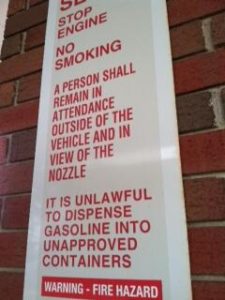by Cheryl Stephens
on January 14, 2014
 I recently agreed to speak to a local MeetUp group on the topic “Plain Language is a right.” MeetUp is an online organizer of local meetings for people with similar interests.
I recently agreed to speak to a local MeetUp group on the topic “Plain Language is a right.” MeetUp is an online organizer of local meetings for people with similar interests.
I’ve been promoting plain language and the rights of readers for almost 25 years—beginning with a stint in continuing legal education where I designed a plain-language course for lawyers. In preparing for the talk, though, I caught myself reverting to the lawyer-like mode of presentation that I had learned long ago to reject. I thought, what am I doing?
Here’s a little history and an explanation. Read More
{ }
by Eric Voigt
on December 4, 2013
 To persuade judges, each legal rule in your motions and briefs must be supported with the best authority. Without citations, judges might think that the stated rules and arguments are merely your opinions—which are irrelevant. (It was a hard lesson for me to learn.)
To persuade judges, each legal rule in your motions and briefs must be supported with the best authority. Without citations, judges might think that the stated rules and arguments are merely your opinions—which are irrelevant. (It was a hard lesson for me to learn.)
As a new lawyer, your primary job is to find the legal authority that best supports your case. Partners rarely have time to redo your research. You don’t just find the best cases on the first page of your search results on LexisNexis or Westlaw. You want judges to know—or at least believe—that you have thoughtfully chosen the cases that support your case.
Generally, you should focus your research on four types of cases, and you should cite unpublished opinions only when published decisions don’t exist for the issue. Read More
{ }
by Joe Kimble
on October 21, 2013
There’s a sign that, in some configuration, appears on every gas pump in Michigan, although most drivers probably don’t even notice it anymore. You can see one in the photo to the right.

Let’s put aside the all-capitals, which are notoriously hard to read. And never mind that the first and second items aren’t exactly parallel. (“Stop engine. Don’t smoke.”) The trouble — linguistically, stylistically, semantically — shows up in the third item.
Look at that little sentence. We get an explicit subject, A person, which really throws off the parallelism. The lawyer’s shall — now corrupted and ambiguous from misuse — does not belong even in statutes or regulations, let alone on a gas pump. Remain in attendance? Oh, please. The first of is unnecessary. And for the big comedic finish, we’re seemingly told that the nozzle must be able to see the person.
The fix isn’t hard: “You must stay outside your vehicle and be able to see the nozzle.” Or for parallelism with the first two items: “Stay outside your vehicle, and make sure you can see the nozzle.”
Now, are people likely to misunderstand the pump version? No. Is this the worst public writing on the planet? Obviously not. But by tracing this mundane example to its source, anyone who cares about clarity in legal and official documents can learn a set of critical lessons. Read More
{ }
 I recently agreed to speak to a local MeetUp group on the topic “Plain Language is a right.” MeetUp is an online organizer of local meetings for people with similar interests.
I recently agreed to speak to a local MeetUp group on the topic “Plain Language is a right.” MeetUp is an online organizer of local meetings for people with similar interests. To persuade judges, each legal rule in your motions and briefs must be supported with the best authority. Without citations, judges might think that the stated rules and arguments are merely your opinions—which are irrelevant. (It was a hard lesson for me to learn.)
To persuade judges, each legal rule in your motions and briefs must be supported with the best authority. Without citations, judges might think that the stated rules and arguments are merely your opinions—which are irrelevant. (It was a hard lesson for me to learn.)

Recent Comments